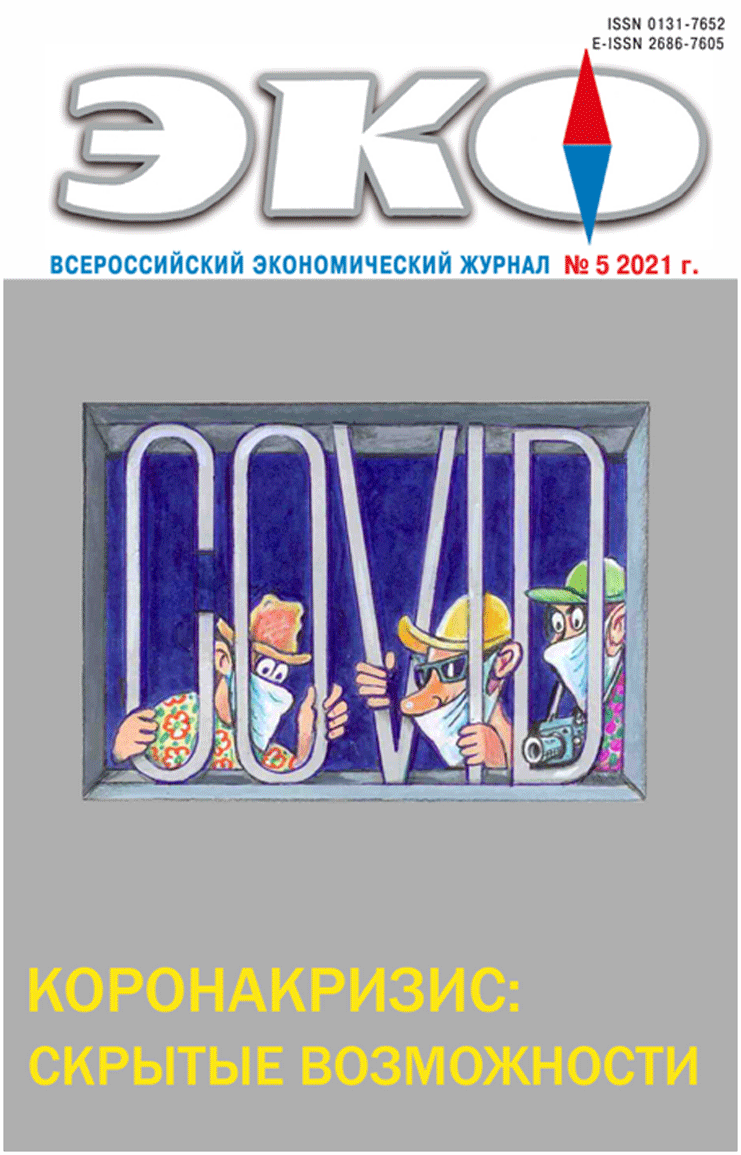Тема номера: Коронакризис: скрытые возможности
Published 2021-05-05
Keywords
- Russian IT sector,
- COVID-19 pandemic,
- crisis,
- anti-crisis policy,
- digital transformation
- business climate ...More
How to Cite
1.
Yakovlev А, Kuzyk М, Sedyh И. The Impact of Crisis and Government’s Anti-Crisis Policy on the Russian IT Sector. ECO [Internet]. 2021 May 5 [cited 2026 Feb. 16];51(5):8-28. Available from: https://ecotrends.ru/index.php/eco/article/view/4245
Abstract
Based on a series of in-depth interviews, we analyze the impact of the current crisis caused by the COVID-19 pandemic on Russian IT firms, as well as the effects of government anti-crisis policies. We also study the prospects of IT development in Russia.It is shown that the crisis has not caused fundamentally new problems for the IT sector, but it has strengthened some pre-existing contradictions. However, along with the absence of critical shocks from the crisis – largely due to a dampening role of public sector orders – there were no fundamental changes in the IT sector.Because of its key role in the digital transformation, the IT sector will significantly determine a recovery from the crisis and a pace of economic development. For this reason, the prospects for the Russian IT sector seem very favorable. However, its economic and social impacts will heavily depend on the quality of public policy.References
- Долгопятова Т. Собственность и корпоративный контроль в российских компаниях в условиях активизации интеграционных процессов // Российский журнал менеджмента. 2004. Т. 2. № 2. С. 3–26.
- Голованова С., Авдашева С., Кадочников С. Межфирменная кооперация: анализ развития кластеров в России // Российский журнал менеджмента. 2010. Т. 8. № 1. С. 41–66.
- Зудин А., Яковлев А. «Подснежники» или незаменимые посредники? Сектор «работающих» бизнес-ассоциаций России (по данным качественного исследования) // Мир России. 2011. Т. 20. № 3. С. 95–124.
- Мкртчян Н. Миграция молодежи из малых городов России // Мониторинг общественного мнения: экономические и социальные перемены. 2017. № 1 (137). С. 225–242.
- Симачев Ю., Кузык М. Влияние государственных институтов развития на инновационное поведение фирм: качественные эффекты// Вопросы экономики. 2017. № 2. С. 109–135. DOI:10.32609/0042–8736–2017–2–109–135
- Терехов А., Ткаченко С. Политическая экономия информационно-коммуникационных технологий: место России на глобальном рынке. М.: Изд. дом Высшей школы экономики, 2019. 312 с.
- Alasuutari P. The rise and relevance of qualitative research, International Journal of Social Research Methodology. 2010. Vol. 13(2). Pp. 139–155. DOI: 10.1080/13645570902966056
- Flick U. An introduction to qualitative research. 4th ed. Thousand Oaks, CA: Sage, 2009.
- Hogan J., Dolan P., Donnelly P. Approaches to qualitative research: Theory and its practical application. Cork: Oak Tree Press, 2009.
- Wright N. Artificial Intelligence, China, Russia, and the Global Order. Air University Press, 2019.

